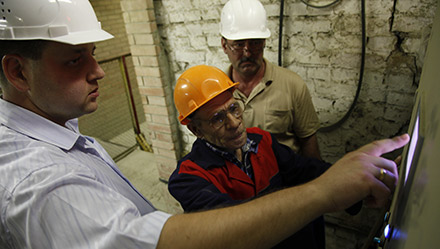Construction companies in Moldova turn to energy efficiency measures

Investor
LLC Marsharcon, a construction company

Location
Balti, Moldova

Investment
Energy efficient windows, thermal insulation of walls and floors, energy efficient gas boilers, room thermostats and thermostatic valves

Investment Size
€372,987

Impact
Improved living comfort, energy savings

Donor
EU NIF, Sweden

Investments reduce the energy bills for tenants and increase the value of apartments
LLC Marsharcon, a building developer and supplier of construction materials, has recently completed the construction of a 90 apartment building in Balti, Moldova. The initial design of the building, fully compliant with national regulations, included a less energy efficient building envelope and technologies.
The MoREEFF experts offered extensive advice to the company on improvements to the energy performance of the building and suggested a long list of measures, leading to lower energy bills and improved living conditions.
The company agreed to the expert advice and applied to MoREEFF for financing of these improvements.
The €372,987 investment allowed for the installation of high performance PVC windows with 70 mm profile frame and double glazing with low-E glass, 100 mm thermal insulation of walls and 80 mm thermal insulation of floors, gas boilers with 93% efficiency rate, room thermostats and thermostatic radiator valves.
The residents will feel the result of the investment immediately through reduced energy bills and improved living conditions. “The new homeowners will benefit from a more comfortable, attractive and cost efficient living environment for many years to come” said Mr Marcoci, director of the construction company.
The construction company highly appreciated the advisory package from MoREEFF, which enabled these wise and future oriented improvements. This way, the EBRD and MoREEFF support implementation of energy efficiency projects by the residential sector – one of the largest energy consumers in the country. Together, the residential, private and public sectors can make a change in energy consumption patterns and contribute to environmental protection.



